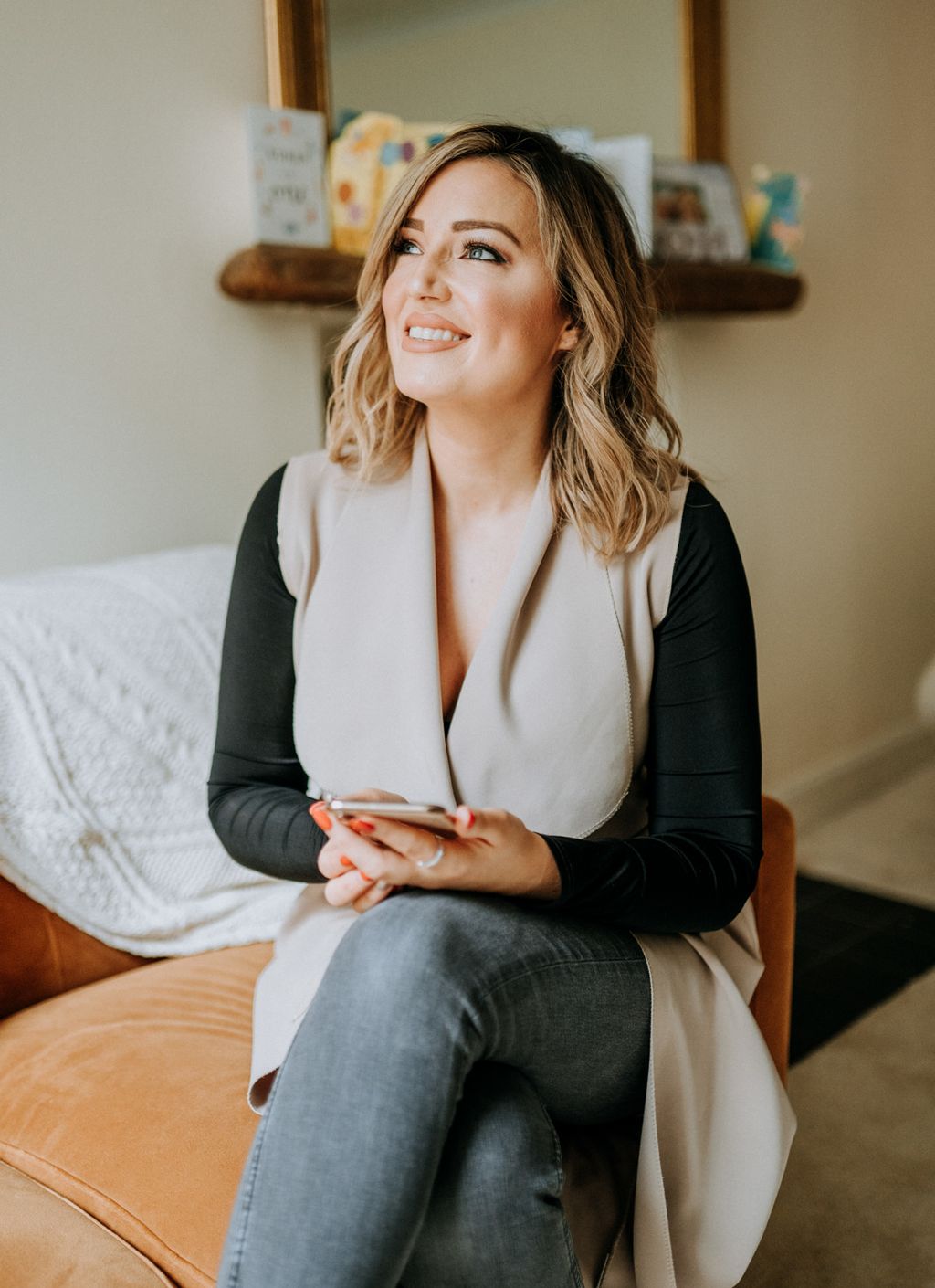How many times have you wanted to do something, but a little voice has dissuaded you from it?
That message telling you that you can't do something, or that you'd fail if you tried, is called a limiting belief. Most of us have them, and they're stopping us from living to our full potential.
HELLO! learnt all about limiting beliefs from transformational coach Mhairi Todd, who managed to silence her limiting beliefs and carve out her dream career for herself.
What is a limiting belief?
"A limiting belief is something you accept to be true, often about yourself and usually without evidence or validation, which has a negative impact on your wellbeing and/or how you live your life," explains Mhairi.
"These beliefs are commonly formed in childhood when we don't have the emotional experience or development to understand the full meaning of what we go through.
MOST READ: How to be happy: 21 expert-approved tips to become your most optimistic self
"For example, say a teacher in school ridicules you in front of the class one day for how sloppy and inaccurate your work is. That experience may be formative enough to see you take on the belief that you are sloppy or you always make mistakes. The kicker is, that belief could stay with you for the for the rest of your life, potentially holding yourself back from promotions or different career options because subconsciously you believe you'll only mess it up if you try," Mhairi says.
"We all have beliefs in order to function in the world, many of these we learned from our caregivers who in turn had their own set of limiting beliefs, so you can imagine how many we take on that are not that helpful."
"We're absorbing all these pieces of information all the time and then living our lives accordingly. The problem is our beliefs are subconscious, you're not thinking to yourself, 'I have a belief that money is scarce’, instead you're just making decisions and acting in line with those underlying assumptions."
In Mhairi's case, she wanted to set up a business, but had the limiting belief that entrepreneurs always fail. "One of my limiting beliefs was 'you can't make money as an entrepreneur' because my dad had businesses when I was younger and all of them had at some point been successful and then failed," she explains.
Mhairi says that because we're not aware of these subconscious beliefs we don't realise that they're stopping us from feeling happier and reaching our full potential.
DISCOVER: Why you'll never be happy without this one key thing
She overcame her own limiting beliefs by setting up her coaching business several months into the pandemic, after her mum sadly passed away, with an eight-month-old child to look after.
"I realised I'd regret it forever if I didn't at least give it a go," Mhairi says of her decision to go headfirst into launching her business.
"People change under certain conditions and one of them is when they hurt enough, they have to. That was definitely my motivation." she says.
READ: Glimmers: what are they, how to spot them and how can they make us happier?
How to discover your limiting beliefs
One of the ways to work out your limiting beliefs is to think of a situation that is difficult for you in your life, such as looking for a new job or starting a new relationship.
Think of that situation then write out the issue simply, for example:
I feel anxious about changing jobs because I don't believe I can get the role that I actually want.
"By writing out your feelings in this way, you're uncovering 'I don't believe I'm capable, I don't believe I'm worthy," explains Mhairi, so using the prompt: 'I feel X about Y, because....' is a great place to start."
For example, if you write, 'I feel nervous about a new exercise class because I don't think I'll be able to keep up' you've worked out why you're not confident to attend the class.
How to overcome limiting beliefs
When you become aware of what your limiting beliefs are, you start seeing how they govern all of your decisions, says Mhairi. Luckily she has two key pieces of advice to help you overcome your limiting beliefs.
Try to support your limiting belief
Our limiting beliefs have been subconsciously learned, but it doesn't mean they're justified, Mhairi says.
"Ask yourself what evidence you have for your limiting belief," she recommends. Chances are, you won't be able to justify it, and this disproving is your first step to overcoming it.
RELATED: 'How learning something new helped me find happiness again'
Change 'what if' to 'even if'
When we're mulling over a change, we often think of the challenge with a negative bias, such as 'what if I can't keep up in the exercise class,' or 'what if I don't get the job,' but Mhairi advises changing this mindset to 'even if.'
For example, 'even if I can't keep up, I've tried something new,' or 'even if I don't get the job, I've gained valuable interview experience.











